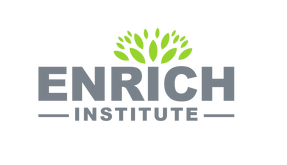|
By: Heng Pheakdey Education shares many similarities with businesses. It is a provider of services – knowledge, advice, assessment and guidance. Just like other service industries, education has its customer, which include students, student’s parents, future employers, government and society as a whole. The education sector is transforming as a result of changes in the way people view schools. Expectations for better performance in terms of teaching and producing competent graduates are increasing. Continuously improving quality is the only way schools can keep up with the new standard. Since the education sector shares similarities with the business sector, the application of quality assurance approach in business can help schools achieve higher efficiency and quality.
First, just like in business, top management must be at forefront of quality improvement and must be actively involved in changing an institution’s culture and motivating staff to take quality seriously. Students are primary consumers of the education service. Thus schools should listen to students’ feedback – the same way companies listen to customers. Schools should identify, define and measure student needs and expectations and work hard to fulfill them. Continuous improvement is the key for all business. Similarly, instead of being complacent for what they have achieved, schools should constantly search for quality problems and develop appropriate measures to improve it. Research, training and benchmarking are the keys to continuous improvement process. The quality of staff determines the quality of education schools provide. So it is of prime importance that teachers are carefully selected, so they meet minimum requirements of the school and meet expectations of the students. While improvement in teaching quality is important, support services, such as administration and finance, library, computer services, and other student services are also key. It is not possible to deliver good quality teaching without support services. Applying quality control methods used in business to education means schools must place students on center stage, emphasize quality over quantity, employ qualified and motivated staff, and continue to innovate curriculum and services to reflect market demand. Heng Pheakdey is Deputy Director of the NGO Forum on Cambodia and founder of the Enrich Institute, a Phnom Penh-based training organization. Note: This article originally appeared in KhmerTimes.
0 Comments
Leave a Reply. |
Categories
All
Archives
October 2017
Disclaimer: All views expressed here belong to their respective author and do not represent the views of Enrich Institute
|

 RSS Feed
RSS Feed
